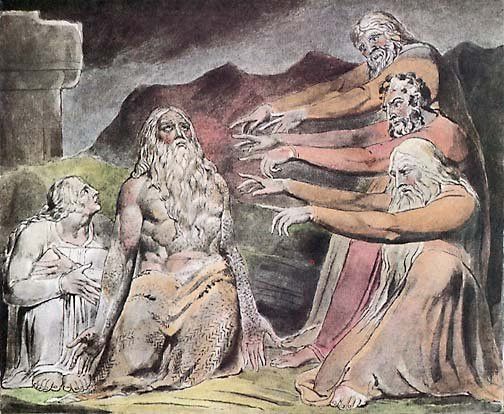
By William Alkhoury January 9th, 2024
The Meaning of Suffering
Have you ever thought about why life is so difficult? Why do we struggle to exist? Why must we constantly face obstacles, hardships, and suffering? Can we find purpose and meaning in the face of tragedy? Why must we confront our own mortality and the inevitability of death, aging, and sickness? Is there a way to escape the pain and troubles of life?
Leo Tolstoy once questioned how people could live with the knowledge that life is ultimately futile and the universe is indifferent. How can we find true happiness when we are constantly denying and avoiding the hard questions? If life has no meaning, then what is the point of living? If suffering is ultimately random, wouldn't it be illogical or irrational to continue on living if it is all meaningless suffering? Wouldn't we be justified in giving up and ending our lives? What could be more meaningless than to perpetuate the meaninglessness?
Nietzsche famously wrote that the lack of meaning in suffering was the greatest burden to humanity. Nietzsche declared, "The meaninglessness of suffering, not suffering itself, was the curse that lay over mankind." Humanity is the bravest animal, the one most accustomed to adversity, even seeks it out, desires it. He argued that the problem is not what we suffer from, but why we suffer at all. Because if suffering is truly meaningless, then life is not worth living. Simply put, meaningless suffering is not worth living. However, if there is any meaning at all, then it is an unconditional meaning. Everything has a meaning. Every life, every situation, every condition, even the worst of conditions, always has a meaning. Life is never without a meaning.
Viktor Frankl believed in the existence of an unconditional meaning that exists in all situations, endures until the very end, until our last breath, and presents the possibility of making sense of even the most miserable of lives. Even the most difficult of lives have a meaning. Either we admit that life has meaning no matter what, in spite of everything, and there is a purpose to our suffering, or we admit our suffering is meaningless and there is no point to survival at all. But once we discover the meaning and purpose of our lives, we would never throw away and waste our existence. Once an individual's search for meaning is successful, it not only renders them happy but also gives them the capability to cope with suffering. Because "those who have a why to live for can bear almost any how." They can overcome anything.
The challenge lies in the fact that meaning is not a given. Nothing has meaning unless it is given meaning. We must seek it out for ourselves. The reality that counts is your experience, and you are the sole creator of your experience (Yalom, p. 257). Every suffering has meaning if you only discover what it is (84, Lukas). Frankl chose "to be worthy of suffering" and rise above his outward fate by making conscious decisions about how he would respond to his circumstances. Logotherapy, the form of psychotherapy developed by Frankl, maintains that we always have choices under all circumstances, choices about the things we can change and choices about our attitudes regarding those we cannot change. We always choose because we are always free. Even if suffering in itself may have no meaning, we can still give and assume meaningful attitudes toward events that in themselves are meaningless. The meaning of suffering is that it can change us for the better, and growth, maturing, and understanding are often the long-range results of suffering. Adversity is essential in bringing out the best in people. Struggle is the law of growth. Pain is a sign of life and a signal for reconstruction (Will Durant). The human soul appears to be strengthened by experiencing a burden, and there is a meaning in demonstrating to others, to "God," and to oneself that one can face suffering and hardship and die bravely, courageously, and with integrity, honor, and dignity. Ultimately, the meaning of suffering may not be understood by logic alone; it has to be experienced.
It is nice to know that happiness may not be the sole purpose of human life. Happiness is not the most important thing. While it is a pleasant byproduct of fulfilling a meaning potential, it is a cruel demand. Life is not made for happiness, but for the achievement of higher meaning, freedom, creativity, and love (Will Durant). We are prepared to endure agony for the sake of love, creativity often emerges from pain and struggle, and we are willing to die and make the ultimate sacrifice for the ideals of freedom and liberty. Life is not necessarily here to make us happy, yet it does offer us a meaning. And "meaning makes a great many things endurable--perhaps everything" (Carl Jung).
Closing Quotes
- "Suffering is the place to begin, because we all suffer." - Buddha
- “If the immediate and direct purpose of our life is not suffering then our existence is the most ill-adapted to its purpose in the world.” - Arthur Schopenhauer
- "Despair is suffering without meaning." - Viktor Frankl
- "To live is to suffer. To survive is to find meaning in your suffering." - Nietzsche
Works Cited
Fabry, Joseph. The Pursuit of Meaning.
Frankl, Viktor. Yes to Life In Spite of Everything.
Ford, Dennis. The Search for Meaning: A Short History. University of California Press. 2007.
Smith, Rodney. Lessons from the Dying.